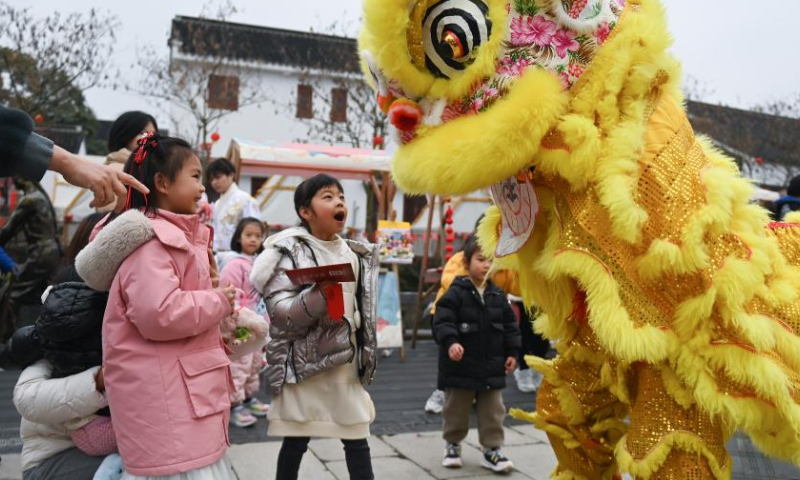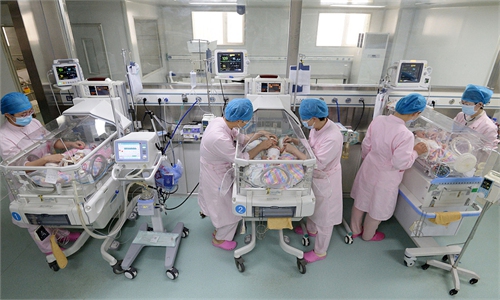Hangzhou to hand out cash to encourage families have more kids, $2,907 for a family with three children

Children interact with lion dance performers in Lucun Village of Balidian Town, Huzhou City, east China's Zhejiang Province, Feb. 5, 2023. People celebrate the Lantern Festival, the 15th day of the first month of the Chinese lunar calendar, with various traditional customs across the country. Photo: Xinhua
The Chinese city of Hangzhou announced on Wednesday new subsidies for families with two children worth 5,000 yuan ($726.8) and 20,000 ($2,907) for those with three; a move aimed at encouraging larger families.
The decision was passed at a meeting of 14th People's Congress of Hangzhou, which was held on Wednesday. Media calculated that according to the 2022 birth rate, the city will issue incentive totaling around 140 million yuan, covering 250,000 families.
Hangzhou, a city home to 12.37 million residents, saw the birth rate for a second child reach tapering point of 52.11 percent in 2017, which has gradually declined. In 2022, the birth rate for a second child accounted for only 35.94 percent of all births, amounting to 19,200 children, according to local media reports.
Hangzhou is not alone. Several Chinese provinces and municipalities published population numbers for 2022, with many reporting a declining birth rate and slight uptick in death rates.
Take Anhui Province as an example, it reported birth rate of 8.05 per thousand and death rate of 8.00 per thousand, making the natural rate of growth of Anhui to only 0.05 per thousand.
In 2022, the population in the Chinese mainland registered negative growth for the first time in 61 years, decreasing by 850,000 year-on-year to 1.4118 billion, data released in January by the National Bureau of Statistics showed.
Many provinces have begun to roll out incentives to encourage couples to have more children. For example, Shenyang city of Liaoning province decided to offer 500 yuan for families with three children every year until the children reach three years old.
Changsha the capital of Hunan province is offering 10,000 yuan to families with three children, who also hold local household registration. This scheme is forecast to cost the Changsha government 20 million yuan per year.

